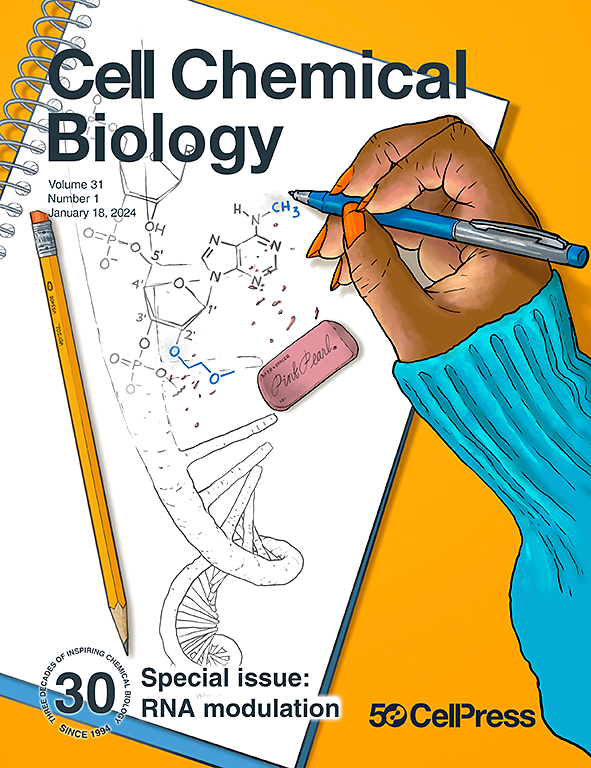Blocking smoothened cholesterylation: A strategy for overcoming drug resistance in cancer
IF 6.6
1区 生物学
Q1 BIOCHEMISTRY & MOLECULAR BIOLOGY
引用次数: 0
Abstract
In this issue of Cell Chemical Biology, Liu et al.1 report the identification of Q29, a synthetic diterpenoid that blocks covalent cholesterol modification of smoothened (SMO) and inhibits hedgehog signaling. Q29 is capable of suppressing tumor cell growth, both in vitro and in vivo, and overcoming resistance to SMO inhibitors.
阻断平滑胆固醇化:克服癌症抗药性的策略
在本期《细胞化学生物学》(Cell Chemical Biology)杂志上,Liu 等人1 报告了一种合成二萜类化合物 Q29 的鉴定结果,它能阻断平滑肌(SMO)的共价胆固醇修饰,抑制刺猬信号传导。Q29 能够在体外和体内抑制肿瘤细胞的生长,并克服对 SMO 抑制剂的抗性。
本文章由计算机程序翻译,如有差异,请以英文原文为准。
求助全文
约1分钟内获得全文
求助全文
来源期刊

Cell Chemical Biology
Biochemistry, Genetics and Molecular Biology-Molecular Medicine
CiteScore
14.70
自引率
2.30%
发文量
143
期刊介绍:
Cell Chemical Biology, a Cell Press journal established in 1994 as Chemistry & Biology, focuses on publishing crucial advances in chemical biology research with broad appeal to our diverse community, spanning basic scientists to clinicians. Pioneering investigations at the chemistry-biology interface, the journal fosters collaboration between these disciplines. We encourage submissions providing significant conceptual advancements of broad interest across chemical, biological, clinical, and related fields. Particularly sought are articles utilizing chemical tools to perturb, visualize, and measure biological systems, offering unique insights into molecular mechanisms, disease biology, and therapeutics.
 求助内容:
求助内容: 应助结果提醒方式:
应助结果提醒方式:


